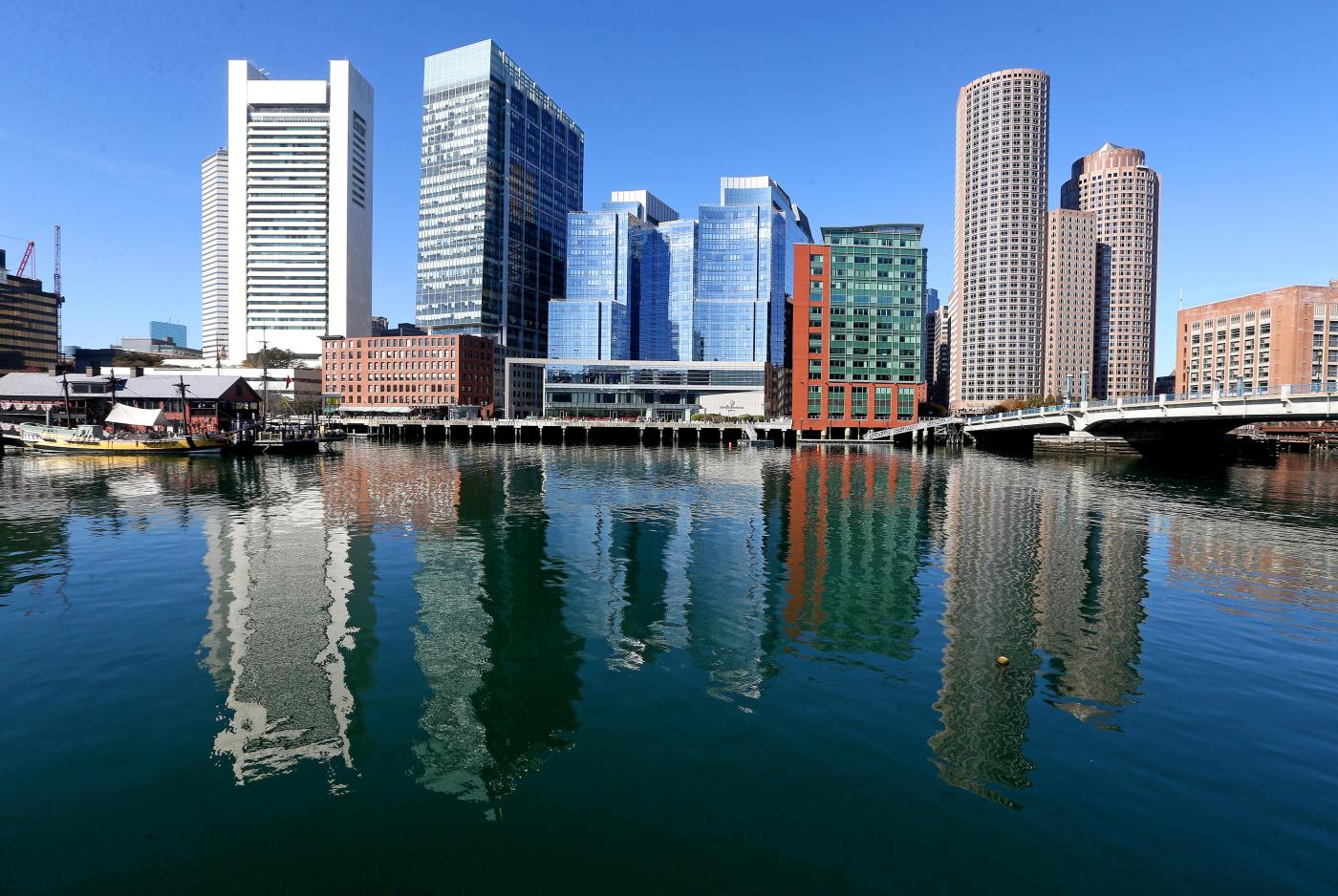
Boston City Council taking $1B budget gap warning seriously
While the Wu administration has downplayed its findings, city councilors indicated that they’re taking seriously a watchdog report that points to a $1-billion-plus budget gap brought on by Boston’s eroding commercial tax base in five years.
Citing concerns with the long-term impacts of vacant downtown office buildings on the city’s commercial tax base, which, along with residential property taxes, make up roughly three-fourths of annual budget revenue, the Boston City Council chose to move forward with two proposals aimed at looking further into the matter.
“What it shows is that the Boston City Council is taking this issue seriously,” Councilor Ed Flynn said of a non-binding resolution he put forward that passed the body, 12-0, Wednesday calling for the creation of a blue ribbon commission that would study strategies in filling downtown office vacancies.
Flynn was joined by Councilor Brian Worrell in putting forward proposals that were responsive to the findings of a February report issued by the Boston Policy Institute, which projected a $1.2-$1.5 billion revenue shortfall in five years, driven by COVID-era work practices that have left office buildings largely vacant.
The report laid out a scenario where residents could be left with higher taxes to make up for a loss of revenue brought on by office space values that are expected to decline 20-30% and commercial real estate prices that are expected to fall 12-18% by 2029.
Boston’s commissioner on assessing, Nicholas Ariniello, disputed the findings of the report upon its Feb. 15 release. The city has “not seen any indications from the real estate market that would translate to a loss of revenue” or budgetary concerns, he said, but it is keeping a “close eye” on the matter.
Flynn said that while appreciates his remarks and has “great respect” for Ariniello, “with these reports of alarming budget shortfalls on the horizon, we cannot afford to wait and see before reacting to a fiscal crisis.”
“Oftentimes government waits to react to a crisis in hopes that the music will never stop,” Flynn said. “But it’s critical we take proactive steps now in order to be prepared for any and all issues regarding potential revenue.”
Flynn said he envisions a blue ribbon commission composed of business leaders, city and state officials, neighborhood activists and other relevant experts to study the impact of, and make recommendations to fill, office vacancies to ensure the “long-term economic viability of Boston.”
Related Articles
Using Boston’s White Stadium for women’s pro soccer team kicked in court
Boston school reporting policy under fire after 3-year-old found strapped to chair
City Councilor Erin Murphy announces campaign for clerk of Suffolk Supreme Judicial Court
Boston City Council to consider statue in honor of Crispus Attucks shot and killed in Boston Massacre
Construction on special education Carter School reaches new milestone
While it’s unclear whether the body’s action to approve the resolution will lead to the creation of such a committee, there will be further discussion on a hearing order filed by Worrell that garnered considerable support and was referred to the ways and means committee he chairs for further discussion.
In the order, “to discuss projected commercial property tax values for Boston,” Worrell cites the results of a recent study from CBRE, which found that the city’s office vacancy rate was 16% in the fourth quarter of 2023, nearly 10% higher than the 7% pre-pandemic rate seen at the end of 2019.
The vacancy rate grows to nearly 23% when considering only buildings located in the city’s prime business districts, such as the Seaport, Back Bay, Financial District, Fenway/Kenmore and North Station/Waterfront, the order states.
Worrell said in the order that remote and hybrid work practices that grew more popular during the pandemic have led businesses to cut the size of their offices and have negatively affected downtown businesses.
The hearing will explore those impacts on the city’s operating budget. Roughly $3.2 billion of revenue in the city’s $4.2 billion approved spending plan for fiscal year 2024 came from property taxes. Most of that revenue, or $2.1 billion, was sourced from commercial buildings, his order states.
“This isn’t yet a revenue issue for Boston and we are unlikely to face a fiscal cliff,” Worrell said, “but we need to understand the challenges we face and be prepared to address them adequately.”


